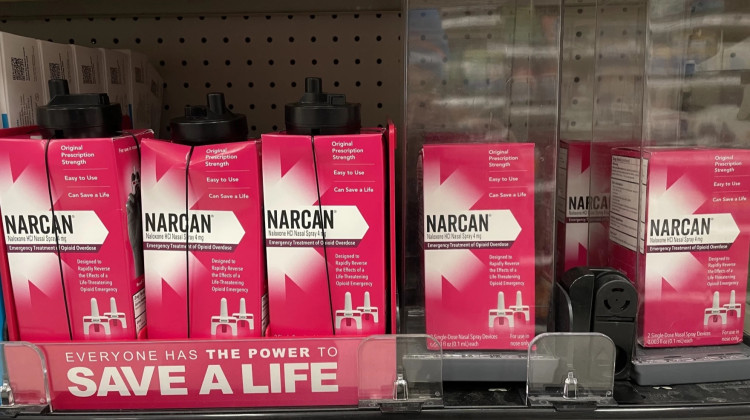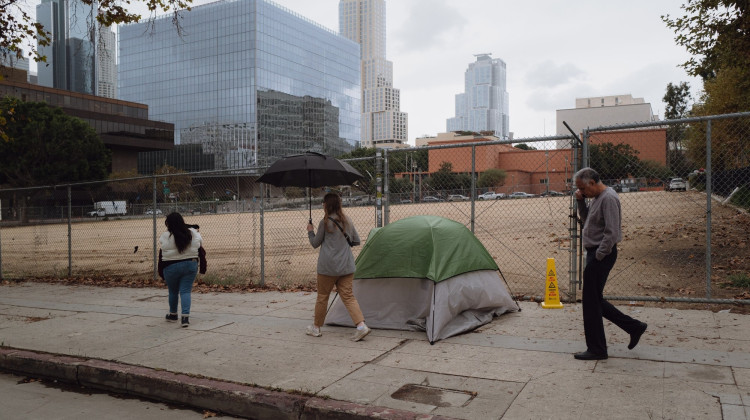
The biggest discrepancy came from how they felt ordinary people in their local communities had handled the crisis.
Emma Atkinson/WFIU-WTIU NewsA new study from the Pew Research Center links Americans’ emotions during the COVID-19 pandemic to their trust in others, finding that those with less interpersonal trust were more likely to experience bouts of anxiety, depression and loneliness.
The survey, conducted in March, asked respondents three general questions about others’ trustworthiness, fairness and helpfulness. Depending on their answers, people were placed into three categories: high, medium and low “trusters.”
For one of these questions - whether others will look out for themselves most of the time - 57 percent of respondents said “yes,” down from 62 percent reported in a similar survey in 2018.
The study says this showed a “modest but statistically noticeable improvement in people’s views about others’ altruism.”
Most respondents fell into the low trusters category, with the medium and high trusters not far behind.
The study showed that most high trusters were more likely to be white, older and have more education or a higher income. It also asserted that those in the low truster camp are more likely to report frequent struggles with sleep or feelings of depression, anxiety or loneliness.
However, the Pew Center said there is no way to determine whether those emotions are related to reactions to the COVID-19 pandemic or if they simply reflect underlying differences that already existed. Both could be true, as well.
When asked for their feelings about how various groups have responded to the COVID-19 pandemic, most answers followed a similar pattern: low trusters felt as though governments and communities had not responded well, and high trusters felt they did a good or outstanding job.
The biggest discrepancy came from how they felt ordinary people in their local communities had handled the crisis. Eighty percent of high trusters felt positive about their response while only 44 percent of low trusters said they did a good or outstanding job.
It seems as though the only thing high and low trusters agreed on was whether President Trump has been responding well to the pandemic. Just 47 percent of both groups said yes.
For the latest news and resources about COVID-19, bookmark our Coronavirus In Indiana page here.
 DONATE
DONATE







 Support WFYI. We can't do it without you.
Support WFYI. We can't do it without you.